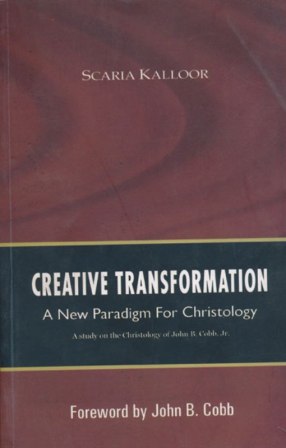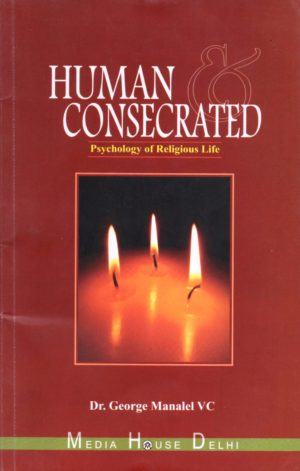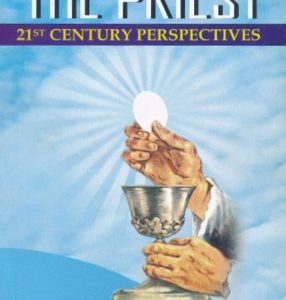Description
CREATIVE TRANSFORMATION
A New Paradigm For Christology
A study on the Christology of John B. Cobb. Jr.
“Christian theology, from its very inception had to wrestle constantly with nagging questions that yielded seldom to easy solutions. The difficulty of understanding the person of Jesus Christ in the context of religious pluralism and modernism characterizes the main theological problematic of our age. The core of the question is: How are we to understand and interpret our faith in Jesus Christ in the context of a religiously pluralistic situation, and the advancement of modern science, in which we find ourselves today?”
FOREWORD
PREFACE
GLOSSARY OF PROCESS TERMS
GENERAL INTRODUCTION
CHAPTER ONE
PROCESS THEOLOGY AND THE IMPORTANCE OF PROCESS
PHILOSOPHY
1.1. The Role of Philosophy in Shaping Theology
1.2 Process Thought as a Conceptual Framework for Theology
1.3. Process Theology and the Chicago School
1.3.1 The Chicago School
1.3.2 The New Theological Approach of the Chicago School
1.3.3 The Key Figures of the Chicago School
1.3.3.1 Shailer Mathew
1.3.3.2 Nelson Wieman
1.3.3.3 Charles Hartshorne
1.3.4 The Contribution of the Chicago School to Process Theology
1.4. Whitehead’s Understanding of Reality and its Religious Implication
1.4.1 Whitehead’s Methodology
1.4.2 Process
1.4.2.1 The Origin and Meaning of the Term Process
1.4.2.2 The Religious Implication of the Processive Vision of Reality 48 1.4.3. Enjoymen
8 I Creative Transformation: A New Paradigm for Christology
1.4.4. Essential Relatedness
1.4.5 Incarnation
1.4.6 Novelty
1.5. Understanding of God in the Process Theology
1.5.1. God as Creative-Responsive Love
1.5.2. Divine Creative love as Persuasive
1.5.3. Divine Creative Love as Promoting Enjoyment
1.5.4. Divine Creative Love as Adventurous
1.6. John B. Cobb as a Process Theologian
1.6.1. A Biographical note
1.6.2. Transfer to Claremont and the Establishment of the Centre for Process Studies
1.6.3. Cobb’s Theological Career.
1.6.4. Development in Cobb’s Writings
1.6.5. Various Aspects of John Cobb’s Theology
1.6.5.1. John Cobb’s Theological Method
1.6.5.2. Holistic Theology
Conclusion
CHAPTER TWO
UNDERSTANDING OF CHRIST AS CREATIVE TRANSFORMATION
2.1. A General View of Cobb’s Christology
2.1.1. Context for Christology
2.1.2. Christologidal Method
2.1.3. Conceptual-Christology
2.2. Meaning of Creative Transformation
2.2.1. Why Creative Transformation.
2.2.2. Creative Transformation and the Whiteheadian Thought
2.2.3. Creative Transformation in the field of Art
2.3. Christ as Creative Transformation
2.3.1. Creative Transformation in Theology
2.3.2. Relativization of the Sacred and the new Sacredization
2.4. Ontological Status of Christ
2.4.1. The Meaning of the Term Christ
2.4.2. The Status of Christ
2.5. Creative Transformation and Logos
2.5.1. Meaning of the Term Logos
2.5.2. Logos Christology in General
2.5.3. Understanding of Logos in Cobb’s Christology
2.5.3.1 Logos as the Provider of Relevant Possibility
2.5.3.2. Two Aspects of Logos
2.5.3.3. Gradation of Logos at Two Different Levels
2.6. Logos and Christ
2.6.1. The Need to Recognize Logos
2.6.2. Naming the Incarnate Logos as Christ
2.6.3. Various Images of Christ
2.6.3.1. Christ as the Incarnate Presence of God
2.6.3.2. Christ as an Agent of Transformation
2.6.3.3. Christ as the Source of Love
2.6.4. The Difference between Logos and Christ
2.7. Christ Beyond Creative Transformation
2.7.1. Limitation of fixing of Meanings
2.7.2. Creative Transformation as an Ongoing Process
2.7.3. Creative Transformation and Religions
2.7.4. Creative Transformation and the Struggle of the Poor
2.7.5. Creative Transformation as Wisdom.
2.7.6. Creative Transformation as Metanoia
Conclusion.
CHAPTER THREE
INCARNATION OF GOD IN JESUS
3.1. Historical Importance of Jesus
3.1.1. The Importance of the Notion of Historicity
3.1.2. Finality of Christ
3.1.3. The Historical Importance of Jesus
3.1.4. The Evolutionary Nature of the Structure of Existence
3.1.5. The Axial Period in Human History
3.2. Effects of Jesus
3.2.1. Effects of Jesus from a Historical Perspective
3.2.2. Modern Historians views on the Effects of Jesus
3.3. Jesus Authority Today
3.3.1. Jesus’Authority through his Words
3.3.2. Jesus’ Authority as ‘Field of Force’
3.3.3. To Be ‘in Christ’
3.4. The Person of Jesus
3.4.1. How God is Present in Jesus.
3.4.2. How God is Present.
3.4.2.1. Inadequacy of the Traditional Explanation.
3.4.2.2. A New Understanding of Presence of
One Entity in Another
3.4.2.3. God is Present in Every Occasion
3.4.2.4. God’s Unique Presence in Unique Occasions
3.4.3. The Person of Jesus
3.4.3.1. AStructural Understanding of Human Person
3.4.3.2. The Personal Self of Jesus
3.5. Jesus the Full Incarnation of Christ
3.5.1. Jesus as the Objective and Real Revelation of Christ
3.5.2. Immanence and Incarnation
3.5.3. Jesus is the Christ
Conclusion
CHAPTER FOUR
CHRIST AS HOPE
4.’1, Eschatological Focus in Theology
4.1.1. The Historical Context
4.1.2. The Threat to Life from Nuclear Catastrophe
4.1.3. Ecological and Economic Issues and the Question of Hope 206
4.2.1. Meaning of “the Future”
4.2.2. Temporal Future and the Future Beyond
4.3. Structure of Hope.
4.4. Creative Transformation as the Basis of Hope
4.5. Various Images of Hope
4.5.1. Paolo Soleri’s Image of Hope
4.5.2. Christian-Buddhist internalisation as an Image of Hope
4.5.3. The Kingdom of Heaven as an Image of Hope- Whitehead
4.5.4. The Resurrection of the Dead as the Image of Hope
4.5.5. Jesus’ Resurrection as the Final Image of Hope
4.6. Unity of Hope
4.7. Christ as the Basis of Hope.
Conclusion




Reviews
There are no reviews yet.